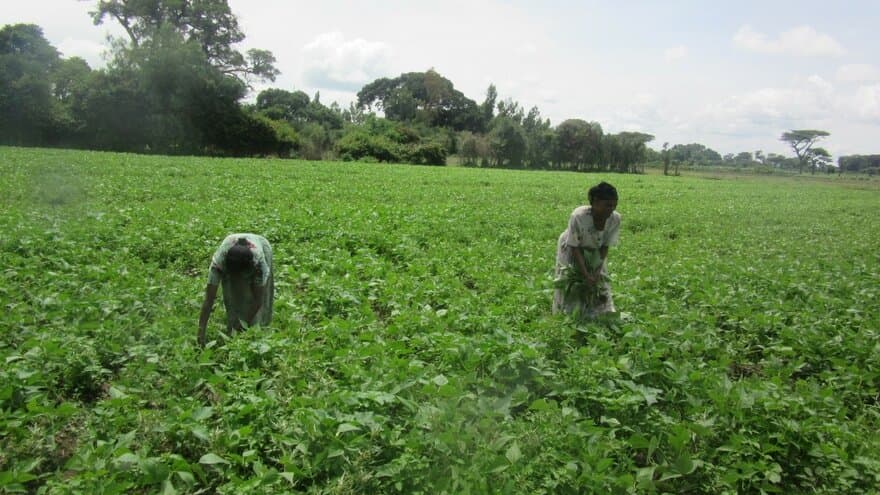Climate-smart agriculture, a development buzzword in recent years, is limited by gender constraints in Ethiopia with social, economic and political restrictions hampering its success, according to new doctoral research by Meseret Tsige.
If Ethiopia is to improve its food security through agricultural growth, the extensive gender inequalities in the country need to be addressed according to fresh research by Ethiopian doctoral candidate Meseret Tsige.
Climate-smart agriculture could provide opportunities for farmers to increase food production and farmer incomes by developing resilience to the impacts of climate change. Yet the successful adoption of climate-smart agriculture requires a reform of the socio-cultural, economic, political and technological constraints currently placed on women farmers in Ethiopia, says Meseret.
What is climate-smart agriculture?
Climate-smart agriculture (CSA) is a term developed by the UN’s Food and Agriculture Organization (FAO) that refers to an approach for developing agricultural strategies to secure sustainable food security under a changing climate. The aims of CSA are i) To sustainably increase agricultural productivity and incomes; ii) To adapt and build resilience to climate change; and iii) To reduce and/or remove greenhouse gas emissions, where possible [source: FAO].
Restricted access to resources
Many Ethiopian women are heavily involved in small-scale farming, yet they lack access to the same resources as men such as credit, land and training in agricultural methods. Womens’ membership in cooperatives and water user associations is also restricted, and the ability to move to different areas to access resources (i.e. their mobility) is inhibited.
The current norm in Ethiopia is that only men inherit land. This paves the way for men to control bargaining for food production. Violence against women further affects intra-household bargaining over food production outcomes.
Gender equality measures do not filter down to the local level
The research indicates that womens' involvement in climate-smart agriculture schemes has not improved their access to human, social, financial and physical resources. This is partly due to the fact that institutional strategies are not designed to take into account both womens' and mens' interests and concerns (i.e. gender mainstreaming) when implementing agricultural policies at the local level. There are no synchronized efforts among the different levels of government structures and agencies to implement gender mainstreaming in agriculture.
To rectify this, agricultural policies should incorporate viable technical strategies that can enhance the operationalization of gender-mainstreaming measures at the local level.
"Problems are multidimensional and complex as they relate not only to patriarchal norms but also to the wider economic, social and political situations of the country" says Meseret.
Agricultural development should be implemented by considering individual farmers’ entitlement to development. Identifying and addressing the patriarchal norms that sustain gender inequality, and improving women’s access to and ownership of land could enhance productivity.
Limitations of state-controlled land
Since land in Ethiopia is currently controlled by the state, smallholders cannot use land for collateral. This may limit smallholders' potential for obtaining income outside of their farms. If women had the opportunity to be involved in investments, they would be able to improve their access to the agricultural inputs required for the proper use of climate-smart agriculture.
Establishing a collaborative approach between the structures and agencies responsible for putting gender-mainstreaming policies into practice could enhance the proper use of climate-smart agriculture by women smallholders.
Meseret based her findings on surveys, in-depth interviews and focus group discussions with 543 participants in southern and south-central Ethiopia, as well as document analyses.
_______________
Meseret Tsige Abebe will defend her thesis 'Gendered agricultural development through climate-smart agriculture: Analysis of its effects on Ethiopian women smallholders' on 4 May via Zoom. See the event web page for details.
Fakta

Meseret Tsige Abebe
PhD Fellow, Noragric
meseret.abebe@nmbu.no
